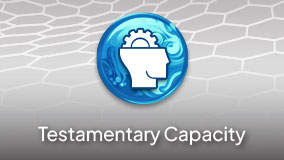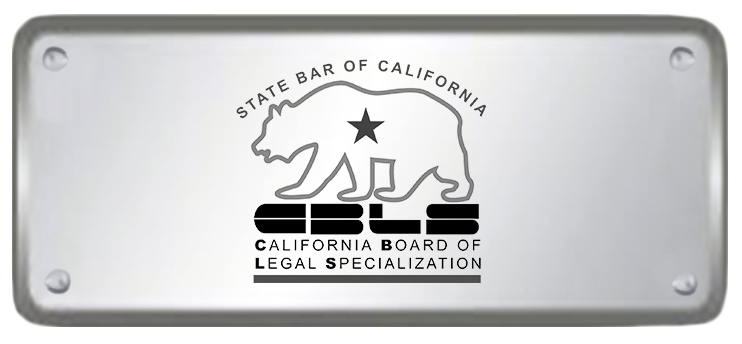TRUST ADMINISTRATION IN CALIFORNIA
TRUST ADMINISTRATION IN CALIFORNIA
Trust administration is a vital legal process that ensures the smooth management and distribution of assets held within a trust. In California, trust administration follows specific guidelines and regulations outlined in the California Probate Code. This involves managing and distributing assets held within a trust after the death of the trustor. The trustee is responsible for following the terms of the trust document and fulfilling their fiduciary duties. The key steps include notifying beneficiaries and heirs, inventorying and appraising assets, addressing debts and taxes, managing and preserving assets, maintaining accurate records, distributing assets to beneficiaries, and obtaining final approval.
The trust administration attorneys at Antonyan Miranda can provide legal expertise, interpret the trust document, ensure compliance with legal requirements, assist with asset valuation, manage debts and taxes, facilitate communication and dispute resolution, provide court representation if needed, and help with record-keeping and accounting.
What are the Trustee Responsibilities?
As the primary figure responsible for trust administration, the trustee plays a crucial role in carrying out the settlor’s intentions. Some key responsibilities of a trustee in California include:
IDENTIFYING AND VALUING TRUST ASSETS:
The trustee must locate and inventory all trust assets, including real estate, bank accounts, investments, and personal property. Valuation of these assets is crucial for accurate accounting and distribution.
NOTIFYING BENEFICIARIES AND PARTIES OF INTEREST:
The trustee is required to provide notice to all beneficiaries and interested parties, informing them of the trust’s existence, their rights, and relevant information about the administration process.
MANAGING AND PRESERVING TRUST ASSETS:
The trustee must prudently manage and preserve trust assets, ensuring they are adequately protected and invested for the benefit of the beneficiaries.
ACCURATE RECORD KEEPING AND ACCOUNTING:
The trustee is responsible for maintaining detailed records of all trust transactions, income, and expenses. Regular accounting reports must be provided to beneficiaries, ensuring transparency and accountability.
What are Beneficiary Rights in a California Trust Administration?
Beneficiaries of trusts in California hold important rights and entitlements that are protected by state law. Understanding these rights, as outlined below, is crucial for beneficiaries to ensure that their interests are safeguarded and that they can actively participate in the trust administration process.
1. RIGHT TO INFORMATION – Beneficiaries of trusts in California have the following rights regarding access to information:
-
- Notice of Trust: Beneficiaries have the right to receive notice that a trust exists and that they are beneficiaries of that trust. This notice should be provided by the trustee within a specific timeframe.
-
- Copy of Trust Document: Beneficiaries are entitled to request a copy of the trust document. The trustee is generally required to provide a copy of the trust instrument upon request.
-
- Accounting Reports: Beneficiaries have the right to receive regular accounting reports from the trustee. These reports provide detailed information about the trust’s financial transactions, income, expenses, and distributions. The trustee must provide these reports at least annually or as otherwise specified in the trust instrument.
- Accounting Reports: Beneficiaries have the right to receive regular accounting reports from the trustee. These reports provide detailed information about the trust’s financial transactions, income, expenses, and distributions. The trustee must provide these reports at least annually or as otherwise specified in the trust instrument.
-
- Trustee Contact Information: Beneficiaries have the right to know the contact information of the trustee. This allows beneficiaries to communicate with the trustee regarding trust-related matters.
2. RIGHT TO DISTRIBUTIONS – Beneficiaries in California have specific rights regarding distributions from the trust:
-
- Right to Timely Distributions: Beneficiaries are entitled to receive distributions from the trust within a reasonable timeframe. The trust instrument typically specifies when distributions should be made, and the trustee is responsible for fulfilling these distribution obligations.
-
- Fair and Equitable Distribution: Beneficiaries have the right to expect fair and equitable distribution of trust assets according to the terms of the trust instrument. The trustee must ensure that distributions are made in accordance with the settlor’s intentions and the beneficiaries’ respective interests.
-
- Income and Principal Distributions: Depending on the terms of the trust, beneficiaries may be entitled to receive income distributions, principal distributions, or both. The trust instrument will outline the criteria and frequency of such distributions.
- Income and Principal Distributions: Depending on the terms of the trust, beneficiaries may be entitled to receive income distributions, principal distributions, or both. The trust instrument will outline the criteria and frequency of such distributions.
-
- Discretionary Distributions: In some cases, the trustee has discretionary authority to make distributions to beneficiaries. However, this discretion must be exercised in good faith and in accordance with the best interests of the beneficiaries.
3. RIGHT TO CHALLENGE TRUSTEE ACTIONS – Beneficiaries in California have the right to challenge trustee actions if they believe there has been a breach of fiduciary duty or improper handling of trust assets. Some important rights in this regard include:
-
- Breach of Fiduciary Duty: Beneficiaries can challenge the trustee’s actions if they believe the trustee has breached their fiduciary duties. This includes cases where the trustee has mismanaged trust assets, engaged in self-dealing, or failed to act in the best interests of the beneficiaries.
-
- Accounting and Record Review: Beneficiaries have the right to review the trustee’s accounting records and financial documentation related to the trust. This enables beneficiaries to ensure proper management of the trust assets and identify any irregularities or discrepancies.
-
- Petition for Removal of Trustee: If beneficiaries have sufficient grounds, they can petition the court for the removal of a trustee. This may be warranted in cases of gross misconduct, incapacity, or persistent failure to fulfill fiduciary duties.
- Petition for Removal of Trustee: If beneficiaries have sufficient grounds, they can petition the court for the removal of a trustee. This may be warranted in cases of gross misconduct, incapacity, or persistent failure to fulfill fiduciary duties.
-
- Petition for Court Intervention: In situations where beneficiaries believe their rights are being violated or that the trust administration process is not being handled appropriately, they can petition the court to intervene and resolve the dispute. This can lead to court-supervised trust administration or modification of the trust terms.
Why Do I Need a Trust Administration Attorney?
The experienced trust administration attorneys at Antonyan Miranda can play a crucial role in assisting with trust administration in California. Here are some ways in which our attorneys can provide valuable guidance and support:
LEGAL EXPERTISE:
Our attorneys possess in-depth knowledge of California laws and regulations. We can provide legal advice, interpret the trust document, and ensure that the administration process adheres to all applicable laws.
TRUST DOCUMENT INTERPRETATION:
Trust documents can be complex and may contain legal terms and provisions that require interpretation. Our attorneys can review the trust document and help the trustee understand their obligations and responsibilities as outlined in the trust.
COMPLIANCE WITH LEGAL REQUIREMENTS:
Trust administration involves various legal requirements, such as filing tax returns, notifying beneficiaries, and following specific procedures. Our attorneys can ensure that all necessary legal obligations are fulfilled and help navigate any potential challenges or complexities.
ASSET EVALUATION AND VALUATION:
Determining the value of trust assets, especially real estate or unique items, may require professional appraisal or evaluation. Our attorneys can help coordinate this process and ensure that the assets are properly valued.
DEBT AND TAX MANAGEMENT:
Our attorneys can assist the trustee in identifying and addressing any outstanding debts or taxes owed by the trust. We can help prepare and file the necessary tax returns, including income tax and estate tax returns, and work with accountants or tax professionals to ensure compliance.
COMMUNICATION AND DISPUTE RESOLUTION:
In some cases, conflicts or disagreements may arise among beneficiaries during the trust administration process. Our attorney can act as a mediator, facilitating communication, and working towards resolving disputes in a fair and legally appropriate manner.
COURT REPRESENTATION:
If disputes escalate and legal proceedings become necessary, our well-skilled litigating attorneys can represent the trustee’s interests in court. This includes filing necessary motions, presenting evidence, and advocating for the trustee’s position before a judge.
RECORD-KEEPING AND ACCOUNTING:
Our attorneys can assist with maintaining accurate records, preparing detailed accounting reports, and ensuring that all transactions are properly documented. This helps provide transparency to beneficiaries and reduces the risk of potential legal challenges.
Engaging an attorney with experience in trust administration can provide peace of mind, ensure compliance with legal requirements, and help navigate any complexities that may arise during the process. Our attorneys at Antonyan Miranda can help the trustee fulfill their fiduciary duties and successfully carry out the wishes of the trustor while minimizing the risk of legal disputes or errors. We aggressively advocate for your interests to help secure all that is important to you. Call us at 619-255-7744 to speak with one of our Concierge attorneys or visit us at www.expertprobatelaw.com for more information.
Trust administration is a vital legal process that ensures the smooth management and distribution of assets held within a trust. In California, trust administration follows specific guidelines and regulations outlined in the California Probate Code. This involves managing and distributing assets held within a trust after the death of the trustor. The trustee is responsible for following the terms of the trust document and fulfilling their fiduciary duties. The key steps include notifying beneficiaries and heirs, inventorying and appraising assets, addressing debts and taxes, managing and preserving assets, maintaining accurate records, distributing assets to beneficiaries, and obtaining final approval.
The trust administration attorneys at Antonyan Miranda can provide legal expertise, interpret the trust document, ensure compliance with legal requirements, assist with asset valuation, manage debts and taxes, facilitate communication and dispute resolution, provide court representation if needed, and help with record-keeping and accounting.
What are the Trustee Responsibilities?
As the primary figure responsible for trust administration, the trustee plays a crucial role in carrying out the settlor’s intentions. Some key responsibilities of a trustee in California include:
IDENTIFYING AND VALUING TRUST ASSETS:
The trustee must locate and inventory all trust assets, including real estate, bank accounts, investments, and personal property. Valuation of these assets is crucial for accurate accounting and distribution.
NOTIFYING BENEFICIARIES AND PARTIES OF INTEREST:
The trustee is required to provide notice to all beneficiaries and interested parties, informing them of the trust’s existence, their rights, and relevant information about the administration process.
MANAGING AND PRESERVING TRUST ASSETS:
The trustee must prudently manage and preserve trust assets, ensuring they are adequately protected and invested for the benefit of the beneficiaries.
ACCURATE RECORD KEEPING AND ACCOUNTING:
The trustee is responsible for maintaining detailed records of all trust transactions, income, and expenses. Regular accounting reports must be provided to beneficiaries, ensuring transparency and accountability.
What are Beneficiary Rights in a California Trust Administration?
Beneficiaries of trusts in California hold important rights and entitlements that are protected by state law. Understanding these rights, as outlined below, is crucial for beneficiaries to ensure that their interests are safeguarded and that they can actively participate in the trust administration process.
1. RRIGHT TO INFORMATION
Beneficiaries of trusts in California have the following rights regarding access to information:
- Notice of Trust: Beneficiaries have the right to receive notice that a trust exists and that they are beneficiaries of that trust. This notice should be provided by the trustee within a specific timeframe.
- Copy of Trust Document: Beneficiaries are entitled to request a copy of the trust document. The trustee is generally required to provide a copy of the trust instrument upon request.
- Accounting Reports: Beneficiaries have the right to receive regular accounting reports from the trustee. These reports provide detailed information about the trust’s financial transactions, income, expenses, and distributions. The trustee must provide these reports at least annually or as otherwise specified in the trust instrument.
- Trustee Contact Information: Beneficiaries have the right to know the contact information of the trustee. This allows beneficiaries to communicate with the trustee regarding trust-related matters.
2. RIGHT TO DISTRIBUTIONS:
Beneficiaries in California have specific rights regarding distributions from the trust:
- Right to Timely Distributions: Beneficiaries are entitled to receive distributions from the trust within a reasonable timeframe. The trust instrument typically specifies when distributions should be made, and the trustee is responsible for fulfilling these distribution obligations.
- Fair and Equitable Distribution: Beneficiaries have the right to expect fair and equitable distribution of trust assets according to the terms of the trust instrument. The trustee must ensure that distributions are made in accordance with the settlor’s intentions and the beneficiaries’ respective interests.
- Income and Principal Distributions: Depending on the terms of the trust, beneficiaries may be entitled to receive income distributions, principal distributions, or both. The trust instrument will outline the criteria and frequency of such distributions.
- Discretionary Distributions: In some cases, the trustee has discretionary authority to make distributions to beneficiaries. However, this discretion must be exercised in good faith and in accordance with the best interests of the beneficiaries.
3. RIGHT TO CHALLENGE TRUSTEE ACTIONS:
Beneficiaries in California have the right to challenge trustee actions if they believe there has been a breach of fiduciary duty or improper handling of trust assets. Some important rights in this regard include:
- Breach of Fiduciary Duty: Beneficiaries can challenge the trustee’s actions if they believe the trustee has breached their fiduciary duties. This includes cases where the trustee has mismanaged trust assets, engaged in self-dealing, or failed to act in the best interests of the beneficiaries.
- Accounting and Record Review: Beneficiaries have the right to review the trustee’s accounting records and financial documentation related to the trust. This enables beneficiaries to ensure proper management of the trust assets and identify any irregularities or discrepancies.
- Petition for Removal of Trustee: If beneficiaries have sufficient grounds, they can petition the court for the removal of a trustee. This may be warranted in cases of gross misconduct, incapacity, or persistent failure to fulfill fiduciary duties.
- Petition for Court Intervention: In situations where beneficiaries believe their rights are being violated or that the trust administration process is not being handled appropriately, they can petition the court to intervene and resolve the dispute. This can lead to court-supervised trust administration or modification of the trust terms.
Why Do I Need a Trust Administration Attorney?
The experienced trust administration attorneys at Antonyan Miranda can play a crucial role in assisting with trust administration in California. Here are some ways in which our attorneys can provide valuable guidance and support:
LEGAL EXPERTISE:
Our attorneys possess in-depth knowledge of California laws and regulations. We can provide legal advice, interpret the trust document, and ensure that the administration process adheres to all applicable laws.
TRUST DOCUMENT INTERPRETATION:
Trust documents can be complex and may contain legal terms and provisions that require interpretation. Our attorneys can review the trust document and help the trustee understand their obligations and responsibilities as outlined in the trust.
COMPLIANCE WITH LEGAL REQUIREMENTS:
Trust administration involves various legal requirements, such as filing tax returns, notifying beneficiaries, and following specific procedures. Our attorneys can ensure that all necessary legal obligations are fulfilled and help navigate any potential challenges or complexities.
ASSET EVALUATION AND VALUATION:
Determining the value of trust assets, especially real estate or unique items, may require professional appraisal or evaluation. Our attorneys can help coordinate this process and ensure that the assets are properly valued.
DEBT AND TAX MANAGEMENT:
Our attorneys can assist the trustee in identifying and addressing any outstanding debts or taxes owed by the trust. We can help prepare and file the necessary tax returns, including income tax and estate tax returns, and work with accountants or tax professionals to ensure compliance.
COMMUNICATION AND DISPUTE RESOLUTION:
In some cases, conflicts or disagreements may arise among beneficiaries during the trust administration process. Our attorney can act as a mediator, facilitating communication, and working towards resolving disputes in a fair and legally appropriate manner.
COURT REPRESENTATION:
If disputes escalate and legal proceedings become necessary, our well-skilled litigating attorneys can represent the trustee’s interests in court. This includes filing necessary motions, presenting evidence, and advocating for the trustee’s position before a judge.
RECORD-KEEPING AND ACCOUNTING:
Our attorneys can assist with maintaining accurate records, preparing detailed accounting reports, and ensuring that all transactions are properly documented. This helps provide transparency to beneficiaries and reduces the risk of potential legal challenges.
Engaging an attorney with experience in trust administration can provide peace of mind, ensure compliance with legal requirements, and help navigate any complexities that may arise during the process. Our attorneys at Antonyan Miranda can help the trustee fulfill their fiduciary duties and successfully carry out the wishes of the trustor while minimizing the risk of legal disputes or errors. We aggressively advocate for your interests to help secure all that is important to you. Call us at 619-255-7744 to speak with one of our Concierge attorneys or visit us at www.expertprobatelaw.com for more information.
FOLLOW US!


























